The mention of Japanese culture calls to mind any number of things, ranging from Pokémon and Nintendo to kimonos and Noh theatre. Japan is full of niche cultural products that are often specific to certain prefectures and certain eras, but to an outsider located elsewhere, only the more popular exports make it through. Even with the best intentions of a person seeking to learn more, the lack of translated Japanese-English websites and media can prevent deeper understanding.
Hikaru Komura, who prefers to go by Hiki, started a blog in 2009 to practice her English after she returned to Tokyo from her overseas studies. The blog quickly gained a global following and Hiki started fielding comments and questions about Japan and Japanese products. At the time, Hiki dreamed up an online store as a quick solution for her readers looking to acquire hard-to-find things from Japanese makers.
She now runs a small shop called Uguisu located in Roppongi, Tokyo that shows the less expected side of Japan. Hiki selects items made by Japanese artisans, independent artists and small makers, many of whom she has personal relationships with. Ninety percent of the things she stocks are from Japan and many of them are made by hand using traditional techniques. At the same time, these items are often useful and can fit easily into a modern lifestyle. As Hiki puts it, she prefers objects with stories behind them, but it’s perfectly fine to use them however they best suit your purpose.
Uguisu is in a quiet residential area, far away from traffic and commercial activity. To get there, a customer would have to already know of its existence. This has been a bit of a business challenge for Hiki, but she wouldn’t have it any other way. Foliage covers the outside of the shop and, except for a small A-frame sign she places on the sidewalk when she’s open for business, there’s no indication of a store here. The building was originally built in 1936 in a Spanish style and, upon closer inspection, is made up entirely of irregular features. No two windows are the same. Every doorknob and doorframe is unique. The walls are textured stucco with different patterns on different walls.
The geographical situation of Uguisu echoes Hiki’s concept for her shop. Private and unassuming, Uguisu repurposes an 82-year-old building and gives a reason to visit a neighborhood you might otherwise never walk through. To get there requires some individual effort, but exploring the things inside and speaking to Hiki is educational and rewarding. Customers often spend whole afternoons conversing with her. Hiki hopes her visitors, both online and to her physical shop, will come to know Japanese culture through the usage and appreciation of objects made with care and thought.
You can shop Uguisu online and visit at the following address.
和朗フラット四号館7号室, 3 Chome-3-23 Azabudai, Minato-ku, Tōkyō-to 106-0043
Special thanks to Justine Wong for connecting us to Hiki.
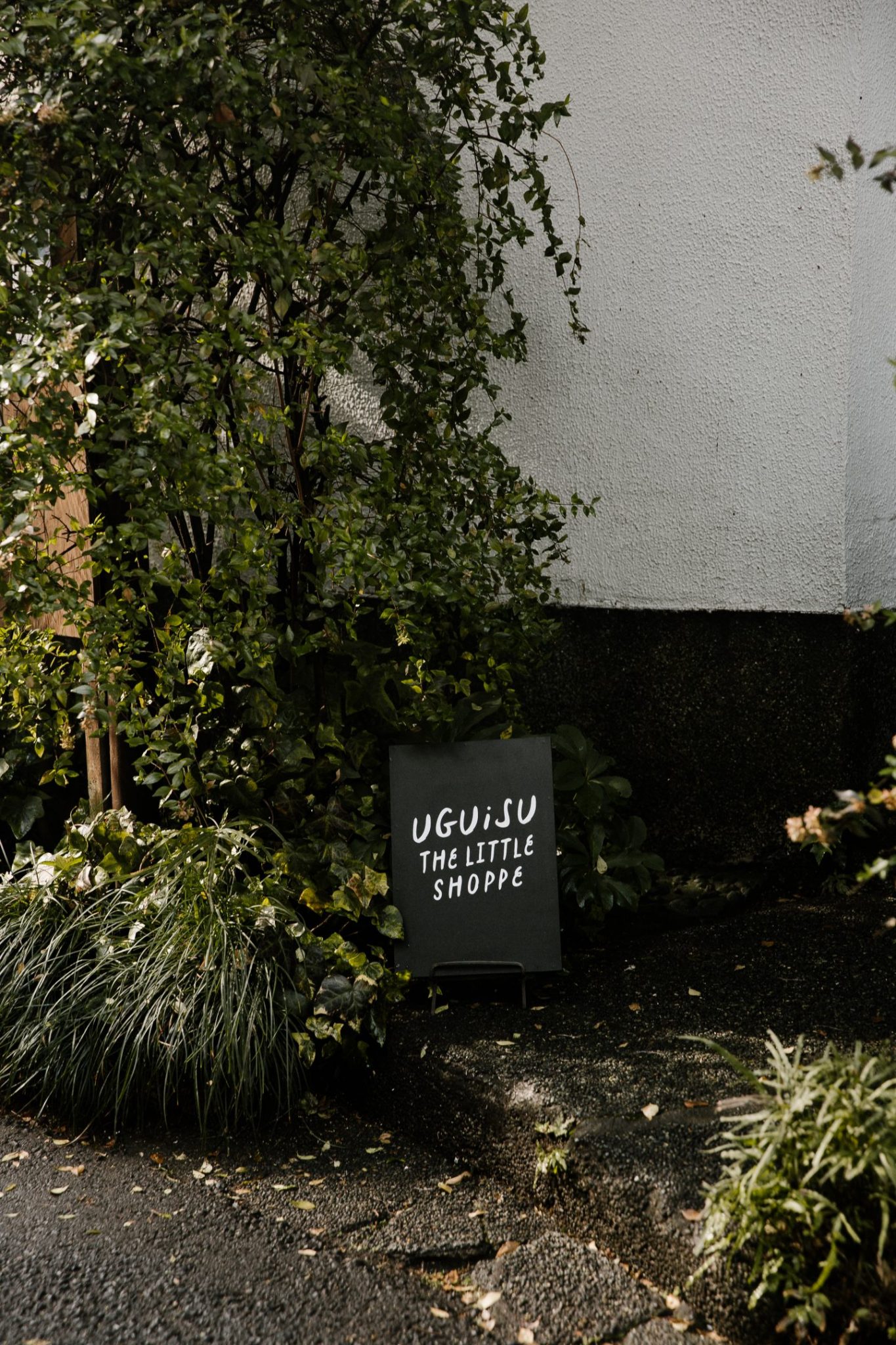
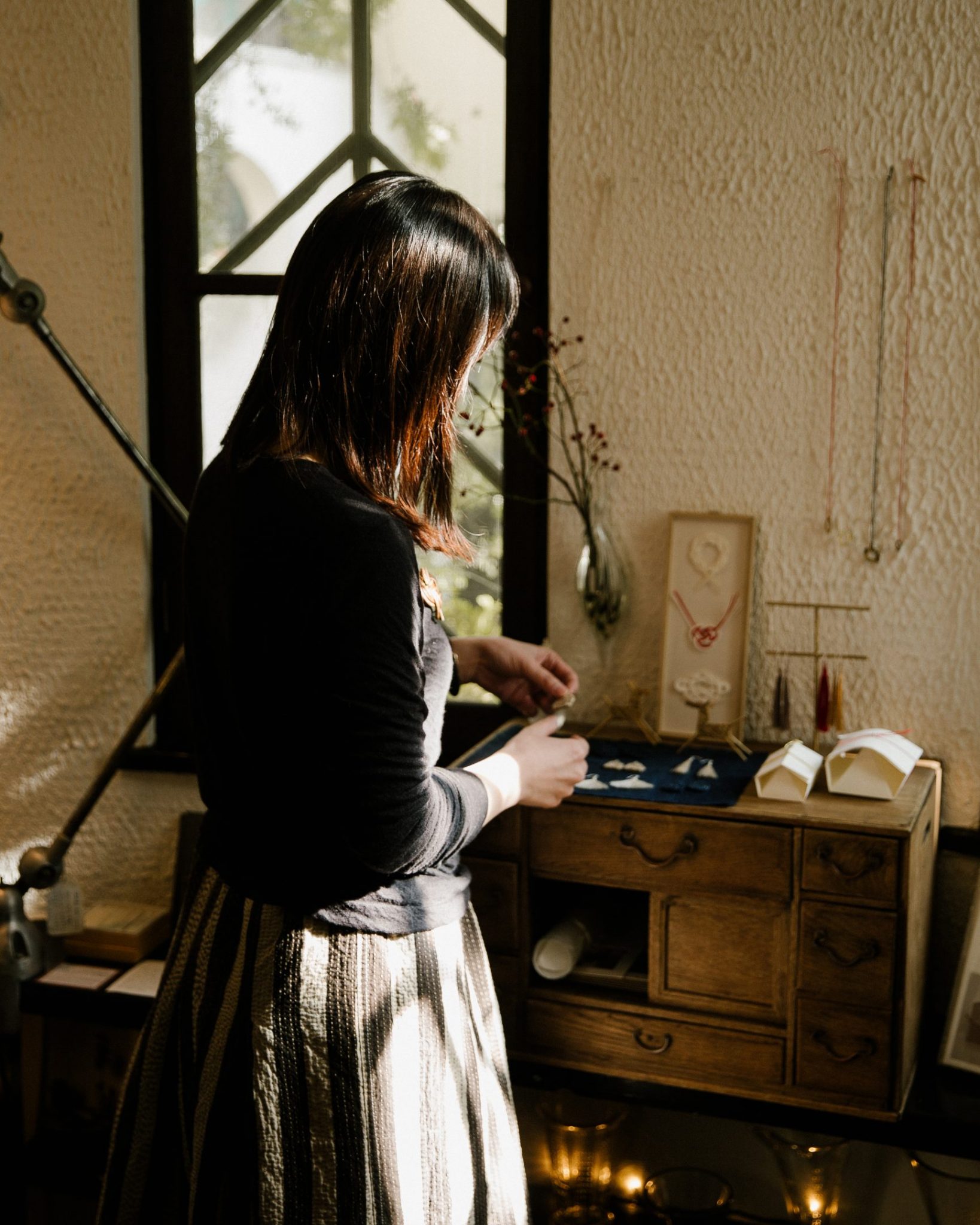
“Many of them said they never expected to see what the real streets of Tokyo are like. The kind of everyday things that we are doing and having in Tokyo. So people started to say ‘thank you for sharing!’”
— Hiki describing the responses of her blog readers
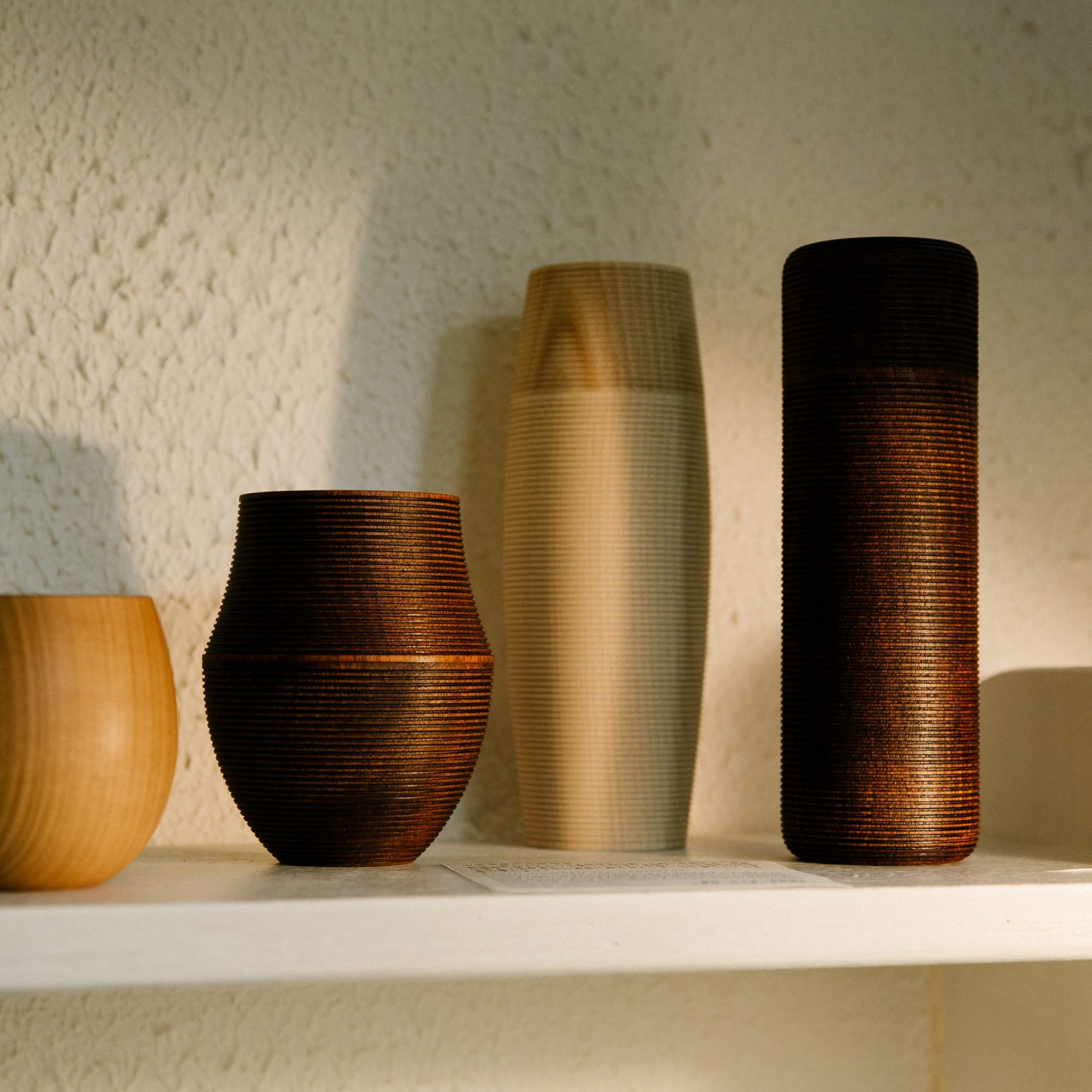
Karmi tea canisters made of cherry birch by artisans skilled in Yamanaka Shikki lacquerware, a craft hailing from the Ishikawa Prefecture.

“When I’m buying something, I always want something that puts a tiny bit of happiness or joy to my day. Otherwise it’s just something you need. I don’t want to sell things that don’t mean anything to anyone.”
— Hiki on selecting items for Uguisu that evoke joy

Hisao Iwashimizu in Iwate prefecture makes these cast iron candle stands by hand. They are intended for traditional Japanese “wa-rousoku” candles which are made entirely from plant material.
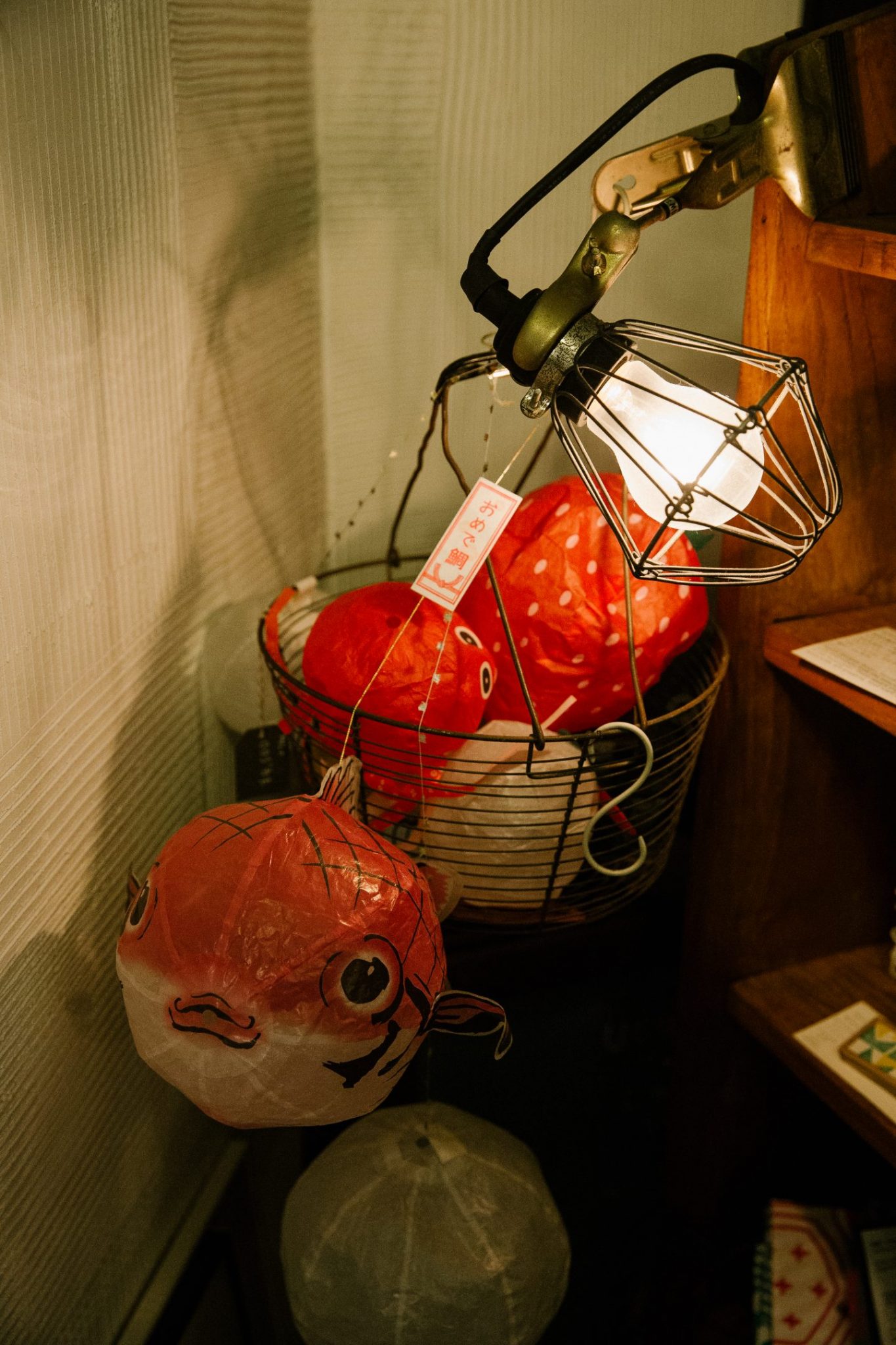
This Japanese paper balloon is a “Happy Sea Bream” which has a tag saying “Omede-tai.” “Omede-tai” is an expression for wishing happiness and good fortune.

“I think it’s nice to try and see that there’s a human behind an online store. Sometimes you could forget that there’s someone who wrapped it, packed it, and shipped it.”
— Hiki explaining why she chooses to gift wrap the items purchased from her online store
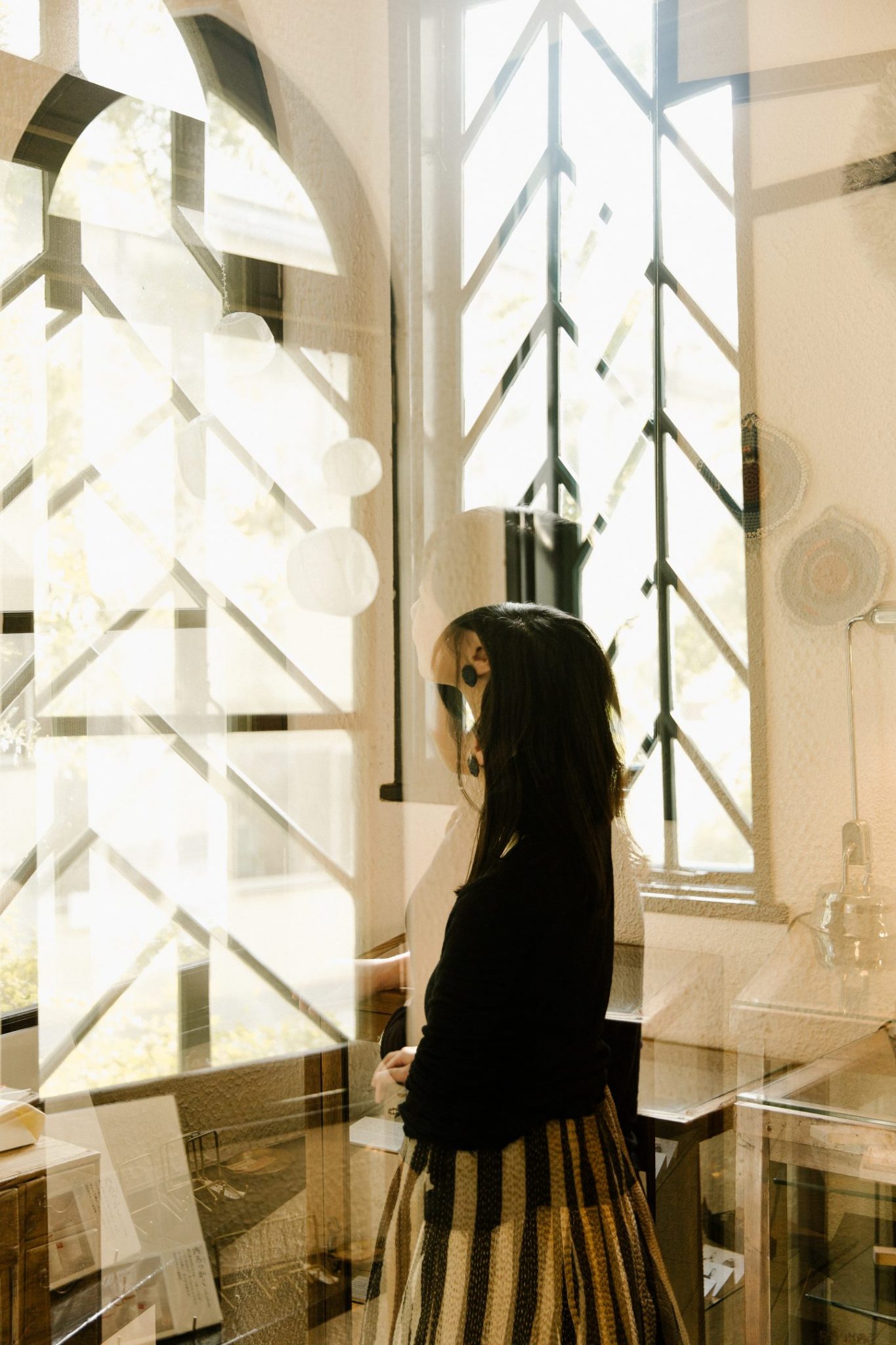
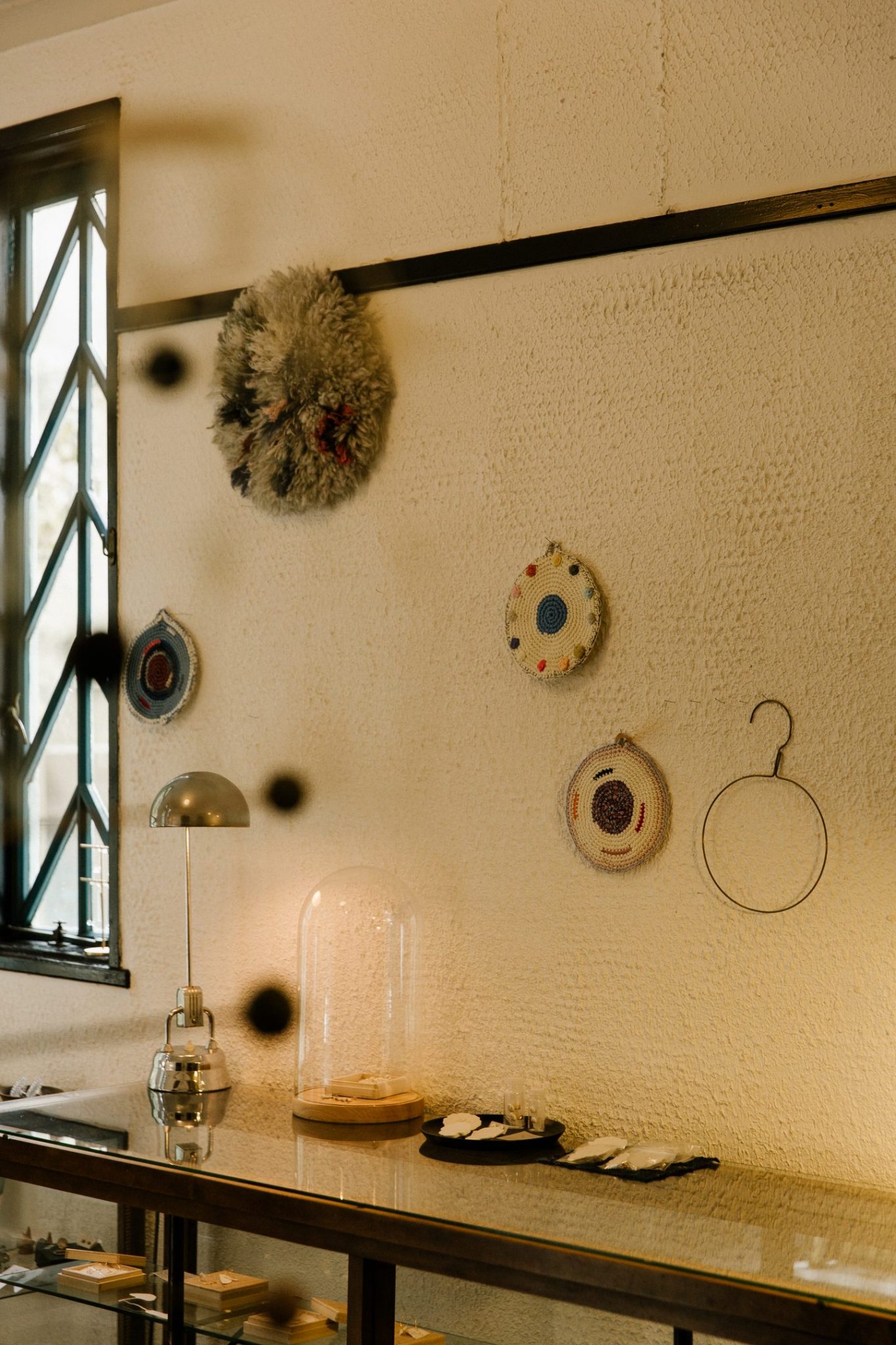
A chair cover and potholders by Renilde de Peuter displayed as wall hangings, plus a brass scarf hanger by fog linen work.
“What I can do is try to help individual artists or small makers be known outside of Japan. I think I can do that through my store and that’s something meaningful, not just for myself, but to both them and people who want to find new things. I want to connect the makers and customers.”





























